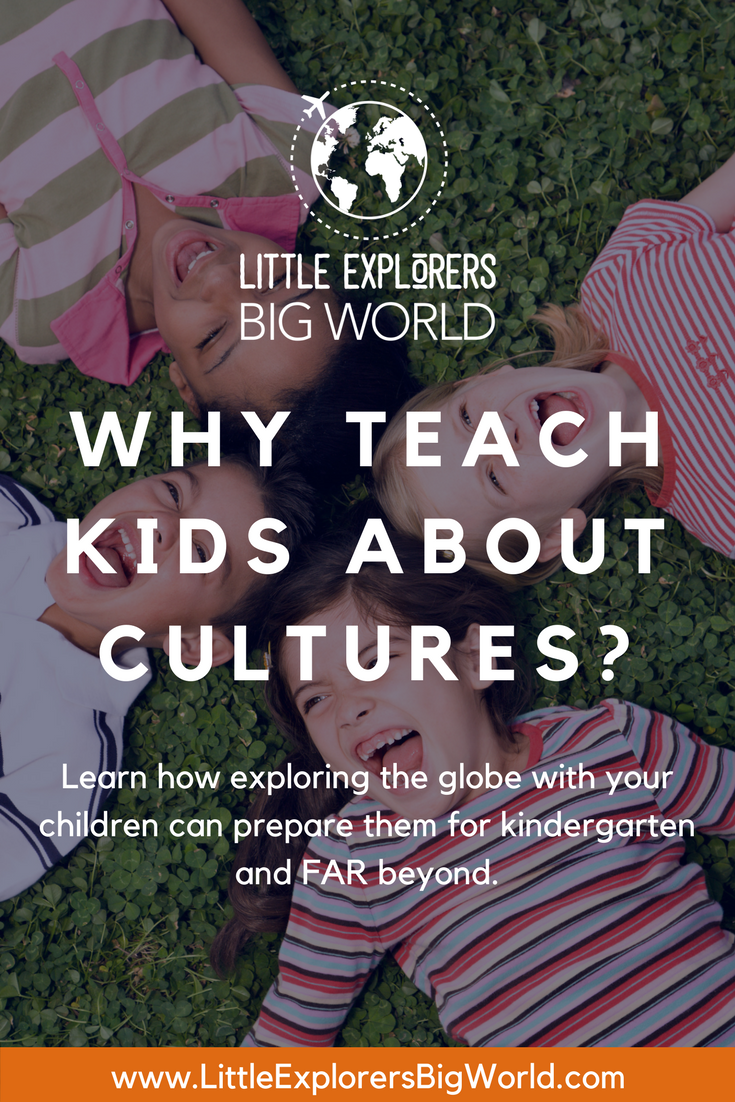The pressure to meet standards for our children's education can be overwhelming!

Between striving to instill literacy, STEM skills, helping them meet motor-skill milestones, and the additional (sometimes unhealthy) weight we parents put on ourselves to ensure our kids are keeping up with their peers - parents can easily feel like exploring the world and its cultures can wait. I believe that it's not only possible to introduce cultural studies to young children, it is imperative! Cultural studies can even help strengthen these skills!
Keep reading for 5 benefits to exploring cultures with your children while they are very young.
Instill a value in cultural diversity
Children need to see differences celebrated and to learn to appreciate things that make others (and themselves) unique. This helps them with their own self-esteem and teaches them to attribute value to every person, no matter how different or similar they may be. Children need to be shown that "different" does not mean "strange," "weird," or "wrong;" and that we can learn from the ideas and contributions of others who have a different perspective.
Stimulate Brain Development
Young minds are in a state of exponential growth, and they need new things to process in order to keep developing healthily. This is one reason why introducing children, even toddlers, to international music, patterns, foods, and languages can be so beneficial. Early childhood is also when children begin to develop the ability to think abstractly. They enjoy acting out what is familiar and imagining what it would be like to experience something that is foreign to them. This is why dramatic play and fantasy play are so important in the early childhood years.
Cultivate Curiosity
Seeing trusted adults approaching other cultures with wonder, excitement and a willingness to learn encourages children to be excited by what they don't know or understand, rather than being intimidated by the unfamiliar. You probably ask your child to try new foods frequently. Let them see you trying new things too!
Teach to Build Bridges
We notice cultural differences with ease - but by exploring similarities along with those differences, we teach children to find common ground and a sense of unity with others. Seeing things that are familiar to them in a new way encourages children to open their minds to new possibilities. For example, if your child loves cookies, you can try introducing them to a Dutch stroopwafel, South African krakelinge, or a Japanese matcha cookie. Children all around the world love cookies!
Make Their World Better
The benefits of starting cultural studies in early childhood go far beyond brain development and kindergarten-readiness. Through raising children who are eager to learn, able to think abstractly, celebrate differences, find common ground, and value the insights of others; we create future adults who will thrive in a diverse world and be a force in making that world better.
If you're ready to begin exploring the world with your child, make sure to visit my Resource Library and sign up for access to FREE printable materials to kick off your adventures!
© 2018 Little Explorers Big World

I totally agree with all your points. Teaching our children about diversity benefits them and makes the world a better place.
You are so right! I strive to teach my son about other cultures to build bridges. I want him not only to accept diversity but to be inclusive. He needs to embrace the gifts that different cultures bring to the table. This is the perfect summary of what all parents should strive to teach their kids!
This really is such an important task for us as parents!
This is so important!